“Employment of computer and information technology occupations is projected to grow 12 percent from 2018 to 2028, much faster than the average for all occupations. These occupations are projected to add about 546,200 new jobs. Demand for these workers will stem from greater emphasis on cloud computing, the collection and storage of big data, and information security.” (Bureau of Labor Statistics, U.S. Department of Labor, Occupational Outlook Handbook.)
Coding and computational thinking also supports and fosters creativity, reinforces math skills and develop problem-solving abilities. (Ted-Ed). There are many resources available to you to get started and to create CS learning opportunities for yourself and for students. Peruse the sections below for Colorado Standards, professional learning opportunities, and ideas for student learning at your school.
“Everyone should learn how to code. It teaches you how to think” – Steve Jobs
Colorado CS Standards
 During the 2016 legislative session, the Colorado General Assembly passed House Bill 16-1198 requiring the development of voluntary Colorado 9-12 CS Standards. The voluntary secondary standards were adopted by the State Board of Education in April 2018. Districts can elect to adopt these standards for high school students.
During the 2016 legislative session, the Colorado General Assembly passed House Bill 16-1198 requiring the development of voluntary Colorado 9-12 CS Standards. The voluntary secondary standards were adopted by the State Board of Education in April 2018. Districts can elect to adopt these standards for high school students.
Computer Science Resource Bank developed in accordance with HB17-1184
Computer Science Professional Development Computer Science teacher pathways and national CS teacher training programs
Colorado Computer Science Grant Program
UPDATES 3/30/19 to CSed Grants – visit COMPUTER SCIENCE CDE
 The CSed Grant Program provides funding to increase enrollment or participation of traditionally underrepresented students in computer science education activities. There are two grants currently available for application:
The CSed Grant Program provides funding to increase enrollment or participation of traditionally underrepresented students in computer science education activities. There are two grants currently available for application:
- The application cycle for the Computer Science Education Grant is now open! The application cycle will run through April 10, 2020. For more information visit the webpage for the Computer Science Education Grant. Applicants may apply for up to $10,000 of funding with a focus on activities that increase student awareness, implement outreach & improve learning spaces. In addition, funding may be used to purchase resources to support the implementation of computer science education activities. This includes technology equipment equal to no more than 50% of the total grant award.
- The application cycle for the Computer Science Teacher Education Grant – Elementary District Determined Option is now open for a second round! The application cycle will run through March 6, 2020. For more information visit the webpage for the Computer Science Teacher Education Grant.
For more information, contact Chris Summers at summers_c@cde.state.co.us or 303-866-6576.
Rock CS in Colorado
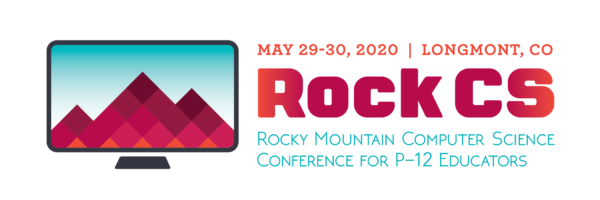 Rock CS, The Rocky Mountain Computer Science Conference for P-12 Educators, a professional development opportunity is designed by Adams 12 Five Star Schools and St. Vrain Valley School District and is open to all Colorado educators. This two-day event, May 29-30 supports P-12 classroom teachers with teaching computer science (CS) and computational thinking.
Rock CS, The Rocky Mountain Computer Science Conference for P-12 Educators, a professional development opportunity is designed by Adams 12 Five Star Schools and St. Vrain Valley School District and is open to all Colorado educators. This two-day event, May 29-30 supports P-12 classroom teachers with teaching computer science (CS) and computational thinking.
Apply to present by February 28, 2020 | Register by April 17, 2020 | Contact info@rockcs.org if you have questions.
- $50 registration
- Beginner to advanced sessions
- Learn how to integrate computer science and/or computational thinking into any content
- Explore innovative strategies for your CS classroom
- The first 100 registrations are eligible to win a prize! (Must be present to win.)
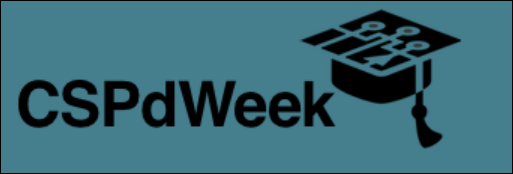 CSPdWeek at CS@Mines
CSPdWeek at CS@Mines
CS@Mines will again host the National CSPdWeek July 20-24! CSPdWeek includes 5-day professional development programs. All options support teachers in offering inclusive & rigorous cs learning opportunities. Register today to save your spot! Located on Mines campus in Golden, CO (housing available).
Bootstrap (Algebra, Data Science, Reactive, or Physics) Contact: schanzer@bootstrapworld.org
Exploring Computer Science (ECS) Contact: chapgail@gmail.com
Beauty and Joy of Computing (BJC- AP CSP curriculum) Contact: pd@bjc.berkeley.edu
CSPdWeek also includes the following 1-day opportunity for counselors:
Counselors 4 Computing: one day – Monday, July 20, 2020 Contact: c4c@ncwit.org
Scholarships available for Colorado high school teachers!! Contact cliebe@mines.edu for more details.
Computer Science Teachers Association – CSTA
 The Computer Science Teachers Association (CSTA) is a membership organization that supports and promotes the teaching of computer science. They provide opportunities for K–12 teachers and their students to better understand computer science and to more successfully prepare themselves to teach and learn. Colorado has a chapter that holds frequent educator gatherings. Visit CSTA Colorado for more information.
The Computer Science Teachers Association (CSTA) is a membership organization that supports and promotes the teaching of computer science. They provide opportunities for K–12 teachers and their students to better understand computer science and to more successfully prepare themselves to teach and learn. Colorado has a chapter that holds frequent educator gatherings. Visit CSTA Colorado for more information.
Computer Science Ed Week

“Computer Science Education Week (CSEdWeek) is an annual program dedicated to inspiring K-12 students to take interest in computer science. Originally conceived by the Computing in the Core coalition, Code.org® organizes CSEdWeek as a grassroots campaign supported by 350 partners and 100,000 educators worldwide.” CSEdWeek takes place every year during December when many schools celebrate CS Hour of Code. Although an Hour of Code is usually scheduled during CS Ed Week, you can continue the learning through the year using the resources in the sections below.
CSed Week Resources / Hour of Code Games/Resources / Hour of Code & Beyond
Continuing CS Education – Beyond CSed Week
There are many resources available to you to continue CS education at your school. Below is a short list, definitely, not exhaustive!
 Code.org – “Learn Computer Science – Change the World”
Code.org – “Learn Computer Science – Change the World”
-
-
- Getting Started as a teacher, Setting up your dashboard, Sections, & Google Classroom Integration
- Teach Computer Science & Find Professional Learning
- Learning Computer Science at Home
- Computer Science Advocacy in Your State
-
Blockly and more about Blockly Games Blockly Games is a series of educational games that teach programming. It is designed for children who have not had prior experience with computer programming.
 CodeMoji Codemoji’s computer science curriculum for schools allows 1st-8th grade students to learn the basics of web development and coding, including HTML, CSS, and Javascript
CodeMoji Codemoji’s computer science curriculum for schools allows 1st-8th grade students to learn the basics of web development and coding, including HTML, CSS, and Javascript
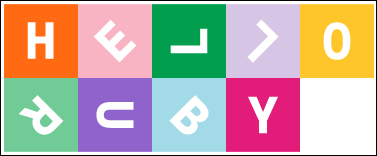 Hello Ruby! “Getting girls into programming, one children’s book at a time ” (Tech Crunch) Hello Ruby! is a website (and book!) created by Liukas to explain programming fundamentals to kids. The detailed lesson plans are appropriate for kids 5+.
Hello Ruby! “Getting girls into programming, one children’s book at a time ” (Tech Crunch) Hello Ruby! is a website (and book!) created by Liukas to explain programming fundamentals to kids. The detailed lesson plans are appropriate for kids 5+.
Smart List: 22 Coding and Computer Science Resources
Scratch Program interactive stories! Scratch is a project of the Lifelong Kindergarten Group at the MIT Media Lab and is provided free of charge.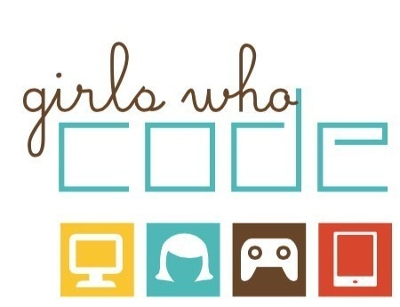
Girls Who Code “Girls Who Code is on a mission to close the gender gap in technology and to change the image of what a programmer looks like and does” This a must-visit site that will support your school in creating opportunities for girls through clubs, summer immersion & more.
Google & CS
CS First Google for Education & CS First Curriculum
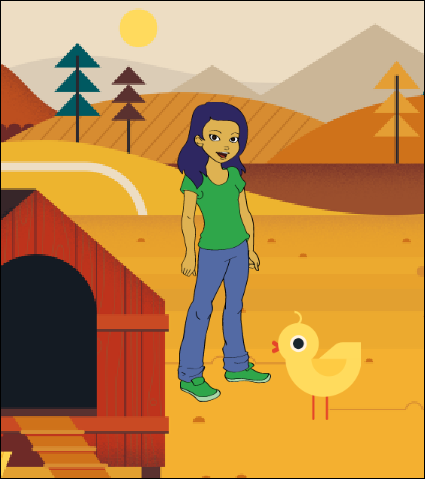 Storytelling: Students use code to tell fun and interactive stories. Storytelling emphasizes creativity by encouraging students to tell a unique story each day.
Storytelling: Students use code to tell fun and interactive stories. Storytelling emphasizes creativity by encouraging students to tell a unique story each day.
Code Your Own Hero

This one-hour coding activity uses Google’s free coding curriculum CS First. Students choose an everyday hero from their own lives & build a story/game using code that gives their hero superpowers. Visit the Hero Code to start coding!
Grow with Google Job Seekers – for job seekers & students!
Computational Thinking for Educators Course
Made with Code Google Projects
Google Applied Digital Skills
Use Google’s video lessons to teach “digital skills that have immediate, real-life applications.”
Lessons filtered by topic and age – check out the lessons to celebrate Digital Learning Day
Ted-Ed Think Like a Coder
Ted-Ed announced its new 10-episode animation series: Think Like A Coder. “The series, in partnership with YouTube Learning Playlists, will challenge viewers with programming puzzles as the main characters— a girl and her robot companion— attempt to save a world that has been plunged into turmoil”. Ted-Ed has an accompanying lesson at Ted-Ed The Prison Break teaching students about the concept of loops.
Featured image by Gerd Altmann from Pixabay
- Library Con Live 2020! - November 2, 2020
- iLearn Collaborative News - October 30, 2020
- All About The News Literacy Project - October 30, 2020
